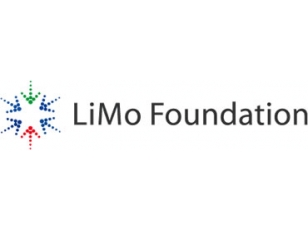Profiled - The LiMo Foundation - A not-for-profit mobile industry consortium
An interview with Gyanee Dewnarain, Senior Marketing Manager at not-for-profit mobile industry consortium the LiMo Foundation on building a Linux based operating system for mobile handsets
The Social Media Portal (SMP) talks to Gyanee Dewnarain about creating a level playing field of all of the stakeholders in building a Linux operating system for mobile handsets Social Media Portal (SMP): What is role at LiMo Foundation?Gyanee Dewnarain (GD):
Social Media Portal (SMP): What is role at LiMo Foundation?Gyanee Dewnarain (GD): I am currently Senior Marketing Manager at LiMo Foundation and I contribute to all strategic and operational aspects of LiMo?s marketing activities which includes developing the marketing plan, key messaging and positioning, analysing market trends & competitive dynamics, managing analyst and press relations, developing LiMo?s web, social media and event strategy and engaging in co-marketing activities with LiMo members.
SMP: Briefly, tell us about LiMo Foundation, what is it and what does it do?GD: LiMo Foundation is a not-for-profit mobile industry consortium that is building an operating system based on Linux for mobile handsets by leveraging member contributions and open source software. The platform benefits from neutral governance offering all members a level playing field and the ability to influence the strategic direction of the platform.
SMP: Why was LiMo Foundation started? GD:
GD: For several years, the mobile industry OS landscape was highly fragmented with dozens of proprietary operating systems. This rendered application development both tedious and costly, preventing true innovation and the mobile internet to come to life. The LiMo foundation came to existence with a view to coalesce the industry around a platform in order to reduce handset development costs, unlock innovation and catalyze next generation applications and services.
SMP: What was the most challenging part of building the organisation (what are your goals and objectives)?GD: The most challenging aspect of software development within an organisation such as LiMo is sustaining a cadence of platform releases that is competitive enough when compared to the broader market landscape while staying to true to the principles of collaborative development and democratic governance.
SMP: Who are your target audience and why?GD: Our target audience are the various stakeholders within the mobile industry ? operators, handset manufacturers, ISVs, System Integrators, silicon vendors and last but not least mobile application developers.
SMP: How did you initially attract users to your organisation, and how do you do it now?GD: LiMo Foundation is a white-label brand and endeavours to avoid dis-intermediation of our members from their customers. Therefore, LiMo does not have a direct relationship with developers or end-users. Our members use the white-label platform and associated tools and documentation, customize and brand them and present them to their own customers.
In terms of how we attract members to our Platform ? the key attractiveness lies in the neutral platform governance, which is unique in the industry. Most other platforms today are being driven by one main stakeholder.
SMP: How do you make the relationship between device manufacturers, developers and operators work?GD: The LiMo Foundation provides a forum for device manufacturers, technology companies and operators to discuss future mobile software requirements and develop the platform roadmap jointly in a way that it reflects the requirements of the main stakeholders, is technically and commercially sustainable and is an attractive proposition to developers.
SMP: How successful has that been for the LiMo Foundation, and how can it improve?GD: The LiMo Foundation has been successful in creating a collaborative development environment and a neutral governance model that brings together the major stakeholders of the mobile industry to coalesce on a common software platform. The next challenge is stimulating more developer interest in the platform and this is something that we are working on at the moment.
SMP: What are the low moments of what you have been doing so far?GD: We have experienced some delays with regards to the public availability of developer tools and this has led to a lot of cynicism in the market about the future of the platform.
SMP: What are the high moments of what you have been doing so far?GD: One of the high moments was the release of the Vodafone 360H1 handset, which showed that the platform was proficient enough to leveraged by a major operator for its flagship service strategy.
SMP: What will be doing at Mobile Broadband 2010 and why are you attending?GD: LiMo is endorsing Mobile Broadband 2010 as we believe mobile broadband will help realise a truly connected digital world, wherein you can access your favourite services and applications irrespective of the device type of form factor. It will equally enable you to experience continuity of service when moving from one device to another.
SMP: See Gyanee Dewnarain from LiMo Foundation any many other high calibre guest speakers at Informa's Mobile Broadband World 2010 between 27-28 Septemeber 2010 at the Hilton London, Tower Bridge Hotel. See http://www.iir-telecoms.com/I2GS2SMP for more information.
SMP: What are the top things that businesses should be aware of when considering mobile broadband, and what things is the LiMo Foundation doing to help achieve this?GD responds with: - Network congestion & bandwidth issues ? what are the solutions (investment in 4G); will femtocells play a role in alleviating the issue?
- Offloading ? should the device be intelligent enough to offload at fixed points whenever one is available?
- Net neutrality ? should Apple and Google contribute towards the cost of the network?
- Mobile broadband monetization - should there be tiered pricing based on consumption?
- The new mobile device types that are always connected ? tablets, Netbooks, e-readers
- The new use cases for mobile broadband ? new services, new applications
SMP: What will be the major developments within mobile broadband over the next year or so?GD responds with:- New devices on which people will access the internet and new use cases
- A change in philosophy from trying to replicate the fixed internet on mobile to creating services specifically intended for mobile.
- Huge investments in next generation networks & the service surround
- A move away from flat rate pricing to tiered pricing
- New ways of leveraging network capacity and bandwidth
SMP: Now that you are established, what do you see as your biggest challenges and opportunities in this space?GD: The mobile OS market is getting increasingly polarised with highly integrated proprietary systems on one end of the spectrum and fully open source platforms on the other end. However, there is a key facet that can be a characteristic of both open and proprietary platforms and which has yet to be explored ? the degree of inclusiveness or discrimination afforded by a platform to its major stakeholders and the resulting impact on these stakeholders (this was brought to the forefront with Apple?s decision not to support Flash).
LiMo Foundation plans to offer the LiMo Platform as a neutral software platform for mobile devices, making it freely available and using it to support a range of supplemental application environments and runtimes, offering implementers the freedom to incorporate the technology within their own strategies without incurring business model conflicts.
SMP: What?s the next big step for social media / networks and what role does mobile broadband have to play?GD: Some social networking applications have become default applications that customers expect to be able to access on any device as they are almost like a virtual extension of their lives. Operators and OEMs should not waste their resources reinventing applications such Facebook but instead bring these experiences to mobile while using mobility to add an additional level to users? social networking experience. Mobile broadband will ensure that end-users can stay connected with their social networks anywhere and anytime and can share their experiences as they happen. Studies show that mobilising social networking applications doubles their usage.
SMP: What?s going to be the most interesting aspect regarding social media / technology throughout 2010?GD: Popular social networking apps such as Facebook and Twitter will be offered by default on all handsets ? even low-end handsets in emerging markets. For many people in emerging markets, the mobile device will represent their first interaction with social networking applications. The profile of Facebookers and Twitterers will evolve from the IT literate crowd to a complete new set of individuals who have a very basic level of education and a completely different style of living.
SMP: Now it is reported that we may be moving out of the global recession what impact do you think social media may have upon a business such as yours (and what role does mobile broadband have to play)?GD: Leveraging social media as a marketing channel can be cost efficient. It enables organisations to reach a very broad audience at low costs and more importantly, it is a richer form of communication as it provides us with a channel to interact with our audience.
SMP: How does this fit into plans at - LiMo Foundation?GD: Besides using social media extensively within our marketing strategy, we are working with our members to integrate social networking framework as a key component within the LiMo platform so that our members can leverage it and for example combine it with the contacts within the address book and the mapping application in order to deliver a truly unique mobile experience.
SMP: What are the next moves for - LiMo Foundation?GD: LiMo will be making some key announcements in Q3 of this year both with regards to the platform and our developer strategy. Stay tuned!
SMP: Best way to contact you?GD: gyanee.dewnarain @ limofoundation.org
Now some questions for fun
SMP: What did you have for lunch?GD: Moroccan Coucous salad
SMP: What?s the last good thing that you did for someone?GD: Buy someone a smartphone so that he can experience mobile internet
SMP: How many hours to you work a week?GD: 16 hours a day on a busy week and 12 hours a day on an average week
SMP: If you weren?t at LiMo Foundation what would you be doing?GD: Run a café or restaurant
SMP: When and where did you go on your last holiday?GD: India in April
SMP: What?s the first thing you do when you get into the office of a morning?GD: Check how the flowers on my desk are doing (or replace them)
SMP: If you had a superpower what would it be and why?GD: Travel back in time and right some of the wrongs I?ve done.
If you are interested in being Profiled,
get in touch with the SMP editorial team via our contact form.
Read more